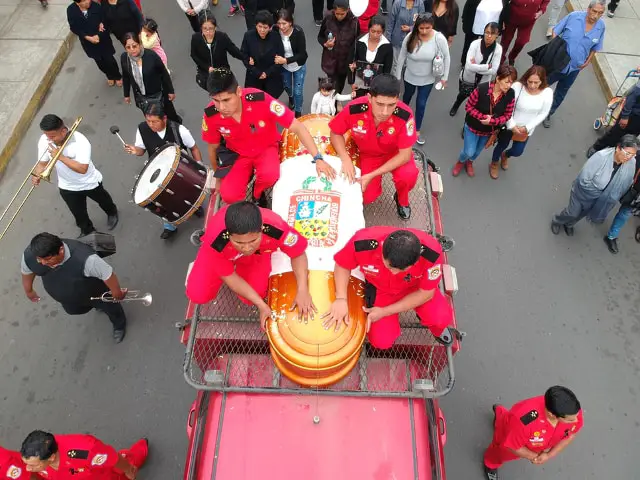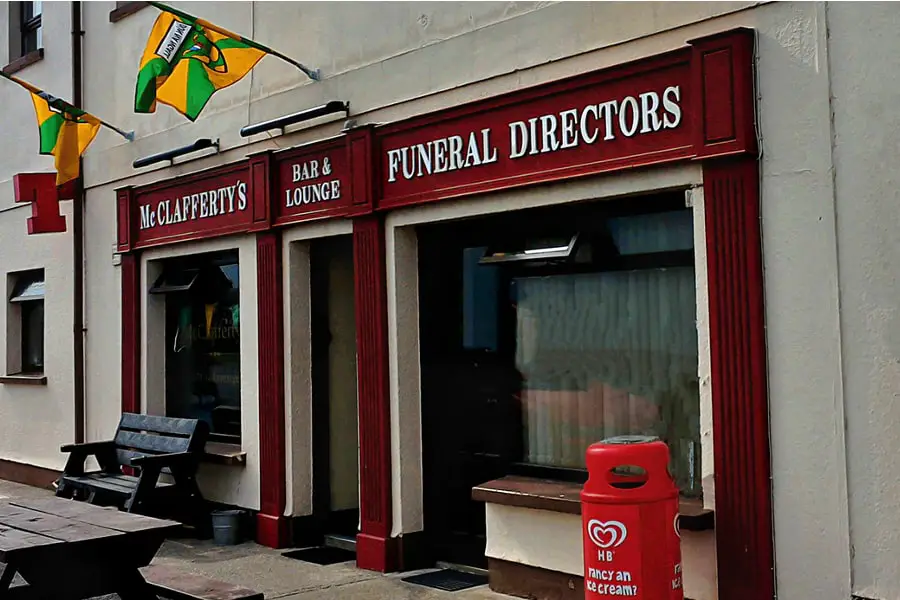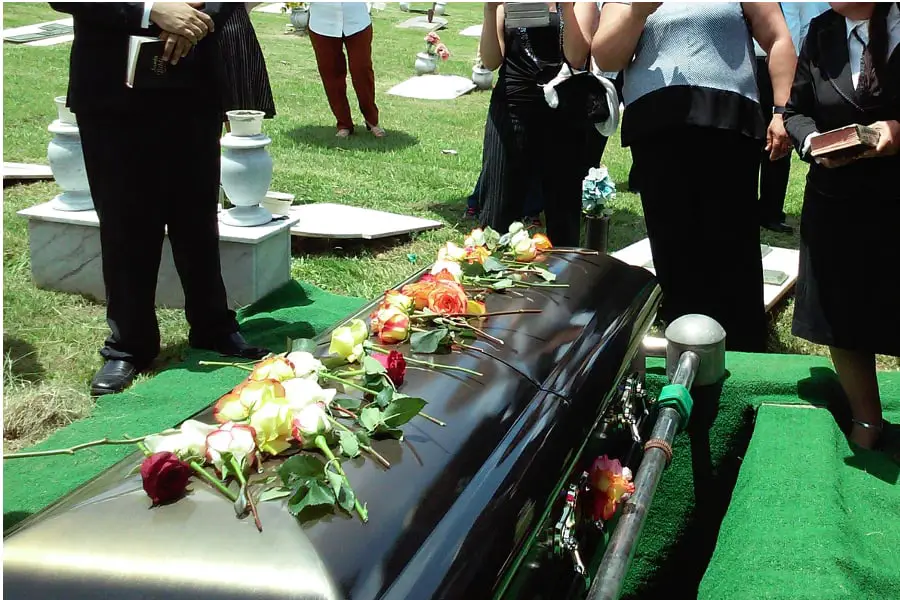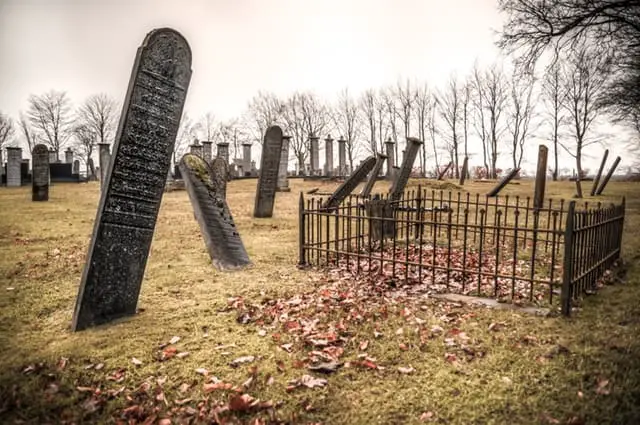Most Americans these days are already in debt or living paycheck to paycheck. After losing a loved one, the added financial burden of the funeral proceedings can be overwhelming.
Are you wondering how to spend as little as possible while honoring the wishes of the deceased? And what to ask the funeral director? If you don’t have a friend like Walter Sobchak in The Big Lebowski, you probably need some advice!
Ask these questions: What’s the price for a simple burial or cremation? The cheapest casket? The most basic funeral service? Make it clear your deceased loved one demanded that their funeral be done cheaply. Do your research, call all funeral homes and crematoriums in your area and compare prices.
You are probably wondering what expenses are necessary for a respectable funeral, burial, cremation, or memorial service. In this situation, there is no such thing as a stupid question; after all, you probably have little or no prior experience to draw from.
Read on for some specific factors to consider and questions to ask:
Dealing with the deceased‘s wishes

Did your loved one make it clear what he/she wanted? More and more often, Americans are expressing the following sentiment: “I don’t want my death to be a burden on anybody”. Inform the funeral home staff of the deceased’s wishes, and insist on the cheapest available option for every item and service that you need.
Unfortunately, in wills and conversations, many people express only in general terms what they want to happen after their death. “I want to be cremated”, “I want my ashes to be scattered in the ocean”, or “I want to be buried in a cemetery”, for example. But they may not be very specific about details, and the details can potentially be quite expensive.
Another great option is to get the ashes made into a permanent piece of jewelry, you should check out the beautiful handcrafted pieces Mark Hamilton makes with cremains by visiting his site here.
You get what you don’t ask for
If you are not very specific with the funeral home or crematorium staff, coffin/casket salespeople, event planners, and transportation services, you will almost certainly be presented with the most expensive options first.
Perhaps your loved one wished to be cremated, and asked for their ashes to be scattered in the ocean? The cremation is a necessary, fixed cost – typically $500 to $1500 depending on where you live – but the coffin/casket, receptacle for the ashes (typically an urn), and transportation to scatter the ashes combined can run a range from hundreds of dollars to tens of thousands of dollars. Make sure you know which services are necessary and which are extra.
Similarly, if your loved one wished to be buried in a cemetery, you will probably be looking at a wide range of prices. Depending on the size and location of the cemetery, the company or city/town that manages it, and even the location within one individual cemetery, the prices vary greatly. Make sure you have found the least expensive option. If you suspect that you haven’t, keep asking around!
Remember, to get the lowest price for the funeral or memorial service, make sure the director knows that you will print and send your own invitations and bring your own decorations.
What’s your lowest price?

Perhaps your loved one made no mention of funeral preferences in the will, or died suddenly before even thinking of writing a will. But you know that he/she would never want their death to be a financial burden on you or anyone else.
The funeral home director or staff may ask respectfully about the wishes of the deceased. If you tell them you have no idea what the deceased would have wanted, they will likely go into maximum sales mode. And they are in a position of power, since they know you will feel embarrassed to be seen by relatives and friends as stingy or cheap. Remember: it’s a business!
A little white lie can go a long way
Instead, you can just lie. No matter whether the deceased is a grandparent, parent, sibling, spouse, or friend, you can turn the tables on the funeral director. For example: “It’s my mother! Of course, if it were up to me, I’d buy the most expensive coffin and hold a huge ceremony! But before she died she insisted that the funeral be as cheap as possible, and I need to honor her wishes!”
If other relatives and/or friends are involved in the planning, make sure they are on board with this white lie.
Tell the funeral director/staff that you are would feel absolutely horrible disobeying the wishes of your dead loved one by spending a lot of money, that you could never live with yourself.
Or perhaps you are terrified of having his/her angry ghost following you around for the rest of your life. One could easily imagine the spirit of a grandparent: “How dare you spend that money on my funeral when you could save it for my grandchildren’s college tuition!”
This conversation can be handled in a serious way or in a humorous way, depending on your personality. No matter whether they believe you or not, the funeral staff will get the point: you will not be persuaded to spend any more than the bare minimum for the items and services you require.
How to ask about cremation

In the US now, more than half of all dead bodies are cremated rather than buried, and this trend is only going to increase. The main reason seems to be cost, as cremation tends to be significantly cheaper than burial. If cremation is your choice, here are some tips:
First, ask the funeral home or mortuary director/staff if they offer cremation. Not all funeral homes do. If they do not, you need to search for the nearest crematorium; unfortunately you are not allowed to cremate your loved one in your back yard.
As mentioned before, in the US the cost of the cremation procedure – that is, the burning of the body in a cremation chamber and collection of the ashes (actually ground bone fragments) into a container – should be between $500 and $1500. But the steps and costs in getting the body from the place of death to the cremation chamber can vary greatly.
Get a quote for transportation of the body
No matter whether you are dealing with a funeral home or crematorium, they will handle the transportation from the hospital or any other location to their facility.
Ask how much the transportation of the body will cost. They should be able to give you fixed rate per mile or another unit of distance. For example, in the US, $1.00 or $2.50 or $4.00 per mile.
Also, ask if they charge separately for a body bag or other container. A body bag can cost anywhere from $10 to $50. You can get a great deal, funnily enough, on Amazon!
For further reading on this industry, the New York Times published an article on August 9, 2016 titled “Transporting the Dead: A Booming but Lightly Regulated Industry”.
If transportation requires airfare or crossing state lines, embalming will be necessary. If you will have on open-casket viewing service before the cremation, your state or country’s law may or may not require it. The funeral director or staff will know whether or not it’s necessary. If it’s not necessary, tell them you don’t want it.
If the body is in a hospital, embalming can be done there before transportation. If embalming is for the purpose of a funeral service, and this funeral home is the final destination of the body, ask the funeral director specifically how much it costs and if they can do it at their facility. In the US, the cost should be somewhere between $200 and $700 depending on the size and condition of the body. If it’s more than that, ask for an explanation.
If you request direct cremation, with no viewing of the body prior to cremation, embalming is unnecessary. The funeral home may allow a brief funeral or viewing service before the cremation, without embalming.
Time is money
Tell the funeral director or staff that you wish to have the cremation done as soon as possible, or tell them your preferred date. Ask how much the storage of the body will cost. In the US, it should be somewhere in the range of $35 to $100 per day. Again, if it’s more, ask for an explanation.
What’s the cheapest casket you have?
If your loved one is being cremated, spend as little as possible on a casket or coffin. If there is no viewing before the cremation, you may not even need one.
Funeral homes and crematoriums have simple cardboard containers that can be used, and those should cost no more than $100 or so.
Even if there is a funeral before the cremation, it is perfectly respectable for the body to be shown in this kind of simple casket. Just make it absolutely clear to the director that simplicity is what your loved one wanted, and it’s non-negotiable.
Often grieving families are sold very expensive caskets which are then cremated along with the deceased. This isn’t what has to happen, but it’s unlikely that a funeral director will tell you this without some coaxing.
In fact, there are several cheaper alternatives from choosing a different material to actually renting a casket for the day. I go into a lot more detail about this in my article here: Being Thrifty: Does the Coffin Get Cremated with the Body?
How much do your urns cost?
For sure, ask about the container that the ashes will be transferred to after cremation. This is typically an urn, and urns can be very expensive. The funeral home may offer a basic inexpensive urn, and you may be satisfied.
But, let’s say the cheapest container they sell costs $50, and you want to save that. You can actually bring your own container! Anything will do, as long as it’s big enough and can be sealed. The Dude and Walter in the film The Big Lebowski use a large Folger’s coffee can to transport Donny’s ashes. Why not?
Finally, scatter the ashes by yourself. A helicopter ride out over the ocean or a lake is an unnecessary risk, and expensive. If you think it’s exciting, or the deceased specifically requested it, you may consider it.
If not, take the ashes out in a boat, or walk to the end of a pier, or hike to a scenic place in the mountains, and scatter them by yourself. But if you have company, make sure you consider the wind (again, a lesson from The Big Lebowski).
How to ask about burial

Burial is usually more expensive than cremation. Perhaps this is not the way it should be.
Cremation causes air pollution, while direct burial of the body under uninhabited land is perfectly environmentally friendly – but it’s the way it is.
The main reason for the high cost is that the body, in a coffin or casket, will be occupying space permanently. You will be charged for the cemetery plot with the understanding that your deceased loved one will be there perhaps forever. If you have chosen burial over cremation, here are some tips:
Is embalming needed in your case?
First, similar to cremation, ask if embalming is necessary for the type of service that you want. If all you want is a simple funeral service at the burial location, you should be able to save on this.
Did your loved one request to be buried in a particular cemetery?
Do you need a burial vault or liner?
Tell the funeral director, and ask if you will be required to purchase a burial vault or grave liner in addition to the casket or coffin.
Yes, that’s right, if your loved one is being buried underground in a traditional cemetery, the coffin will be placed in a concrete vault or between the walls of a liner before the dirt is shoveled on top. This is to prevent the ground from collapsing as the coffin decays over time.
If this is required, make sure you request a liner. These run in the hundreds of dollars. A burial vault will probably cost you over $1000. If you ask around, you may be able to find a cemetery that will accommodate a “natural burial”. More on that later.
Where is the cheapest grave location?

If the deceased did not handle cemetery arrangements in advance, ask the funeral home director to suggest a cemetery. Tell them you want to know the specifics on prices for different areas of the cemetery. If cost-saving is your priority, choose the cheapest one and don’t worry if it’s not the nicest part of the landscape.
What’s the best deal on a headstone?
Next, the grave marker.
There are thousands of different kinds of flat and upright gravestones, and the funeral home may offer a “standard” model for hundreds of dollars or even over $1000. Or the cemetery may require a certain type of stone or marker, and require that you buy it from them. If not, you can search for a cheap stone or marker by yourself, and make sure the cemetery will allow it.
Grave markers are made from a variety of materials including granite, concrete, marble, and bronze. Ask if a simple wooden marker is allowed. This can save you hundreds of dollars. (Etsy.com)
If you want to know more about the exact prices and best material for your money, check out my article What Headstones Last The Longest (Material, Engraving, Style)
An alternative: natural burial or green burial
“I would request that my body in death be buried not cremated so that the energy contained within it gets returned to the earth, so that flora and fauna can dine upon it, just as I have dined upon flora and fauna during my lifetime.”
Neil DeGrasse Tyson (famed astrophysicist)
It’s a beautiful sentiment and an emerging trend. More and more cemeteries in the US and around the world are offering natural burial, also known as “green burial”.
This means your loved one will be buried without embalming, in a simple biodegradable wooden casket or cloth shroud, without a concrete vault or liner. Ask the funeral director, and the staff at all cemeteries you are considering.
For more details on this check out my full article on casketless burials.
In the US, many states allow burial on private property. If your loved one wished to be buried on privately owned land, in his/her back yard for example, by all means, do your best to honor this wish!
Just make sure you learn the regulations concerning the depth of burial and whether or not a casket is required. And understand that this may affect the value of the property should you wish to sell it in the future.
For more details on burying a loved one on private property check out my full article on this topic: Can I Actually Bury A Loved-one On My Property In The USA?
Is a funeral or memorial service necessary?
Actually, neither a funeral nor a memorial service is necessary. Direct burial and direct cremation are very common and will save you a lot of money (cremation is usually cheaper). If you want a formal funeral or memorial service, you will have to pay for it. So first it is important to know the difference between the two.
Funerals vs Memorials
A funeral is a service or ceremony with the body present, either open-casket or closed-casket, typically at a funeral home or crematorium, graveside at a cemetery, or in a church or other religious center. Whether or not viewing the body is important depends on you and your relatives and friends.
A memorial service is an event typically held after the burial, without the body present; or after the cremation, with or without the remains in a container present. Memorial services can be fun and celebratory (check out 41 of my fun ideas for a funeral), or sad and solemn, and vary in cost depending on whether or not food, drink, and decoration are ordered.
If viewing the body and witnessing the burial/cremation are not necessary for you and others involved, you can just arrange a memorial service at your home or the home of another friend or relative of the deceased.
The funeral home doesn’t need to be involved at all. Just make it absolutely clear in the beginning: you want the simplest possible burial or cremation, with no witnesses or additional services.
If you do want a funeral service, you can save a lot of money by keeping it brief and choosing a cheap, simple casket or coffin. Again, just make sure the funeral director knows saving money is your priority, and be prepared to turn down a lot of unnecessary extras.




